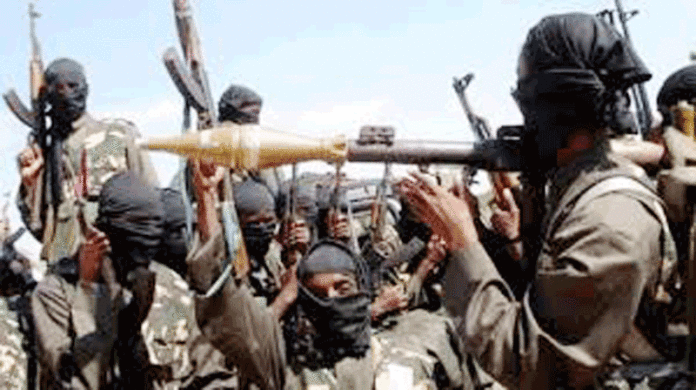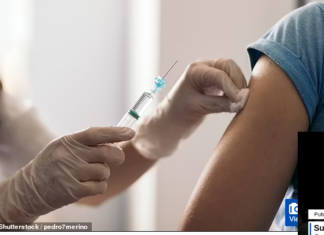By Emeka Alex Duru
The nearest Nigeria had come to its current state of siege in the hands of terrorists, was in the dying days of the former President Goodluck Jonathan administration. Then, barely a year to the 2015 general elections, the nation, was on Monday, April 14, 2014, thrown into mourning following an explosion that rocked Nyanya bus terminus, at the outskirts of Abuja, the federal capital. Members of the outlawed Boko Haram Islamic sect were suspected to have carried out the attack. While confusion that trailed the incidence reigned, there were conflicting reports on how the blast occurred. The police claimed that the explosion affected 16 high-capacity buses as well as smaller commercial vehicles, some of which had loaded and were ready to leave. Another source claimed that three persons who boarded three different FCT high capacity buses may have been the ones behind the blasts.
Two days later, official estimates put the number of people killed in the explosion at 76, with many injured. Eye witnesses however maintained that the figures could be higher.
Same Monday, 129 students of Government Girls’ Secondary School, Chibok, in Bornu State were reportedly abducted by the terrorists. Some of the abducted girls are still in captivity, four years after.
The two dastardly incidents, exposed the fault lines of Nigeria’s security arrangements. They also presented a negative advertisement of the country to the global community. Both the then President Jonathan, who it was believed may have lost the election because of the precarious security situation, among other reasons, and his successor, Muhammadu Buhari, had vowed to deal with the situation, squarely. Jonathan, who appeared to have been jolted by the ugly situation, managed to recover part of the local government areas in the North East that had earlier been annexed by the insurgents. Buhari took the notch higher by regaining the entire 14 councils taken by the terrorists. At a time, in fact, bolstered by the apparent success of the government in reigning in the insurgents, Buhari and the leading officials of his administration had enthused that Boko Haram had been technically degraded. So it appeared till last week when the sect dealt a crushing blow on the psyche of the nation, leaving in its wake, conflicting figures on death toll among soldiers, variously put at between 70 and 118, and estimated 150 missing, at the last count.
Various interpretations have trailed the attack on a military formation in Metele, Borno State. While sources claimed that the soldiers were taken unawares, others maintained that they were overwhelmed by the superior fire power of the insurgents. Yet, another opinion claimed that the invading forces spoke foreign languages, raising the suspicion of possible external invasion. There was however a congregation of opinion on the Nigerian Army lacking the corresponding morale and equipment to confront the invaders.
Buhari has vowed not to allow a repeat of the flip that gave the insurgents the room to swoop on the soldiers. He did not elaborate on how he intends to do so. A statement by his spokesman Garba Shehu, merely expressed his condemnation of the attack and an announcement of a meeting with Service Chiefs on the issue. “No responsible Commander-in-Chief would rest on his oars or fold his hands to allow terrorists endanger the lives of its military personnel and other citizens. Our loyal forces have proved their strength over the terrorists and we are ready to given them all the needed support in terms of equipment and manpower to succeed in ending the renewed threat. In the coming days, I am engaging the Military and Intelligence Chiefs in extensive discussions on the next steps we shall be taking”, the release announced.
Jonathan had made similar pledge at the 2014 attacks, assuring that his administration was on track at exorcising terrorism from the land. The jury is still out on whether the pledge was fulfilled.
Concerned Nigerians however ask for more actions in dealing with the insurgents and not mere rhetoric. Questions are for instance being asked on the One Billion Dollars recently appropriated from excess crude account, purportedly for purchase of arms against the insurgents.
A civil society organisation, Socio-Economic Rights and Accountability Project (SERAP), has, for instance, asked Buhari, to urgently set up a commission of inquiry to investigate the defence spending and military budgets between 1999 and 2018 in order to promote transparency and accountability in the sector.
The demand was in response to the outcry over the killing of over 100 soldiers and officers of 157 Task Force Battalion, when their base was raided by insurgents on November 18. SERAP said the probe would ensure that the funds meant for military operation are spent for that purpose and end the vulnerability and killings of Nigerian soldiers such as the reported death of several soldiers in the Metele attack.
More than the demand on the audit of military spending against Boko Haram, experts have also called for a probe on intelligence handling by the military high command to guard against the country’s security being compromised by terrorists in some instances. Before the Metele incidence, there had been instances of security agents taken unawares by the insurgents.
Earlier in 2010, for example, the terrorists had bombed the Eagle Square venue of a National Day celebration, killing scores and injuring many. The group had also at a time, attacked United Nations’ office in the city, leaving in its trail, blood and anguish. Elsewhere outside the capital territory, the terrorists had bombed a Catholic Church in Madalla, Niger State, killing many worshippers.
There was also the killing of 59 pupils of Federal Government College Buni Yadi in a boarding school in Yobe State, at a time. Adamawa has also on occasions, come under siege by Boko Haram.
Analysts, thus seek more enduring actions at tackling the incidence of the attacks by the terrorists, as against merely reacting to the acts by the government and release of sabre-rattling statements that are hardly acted upon.













